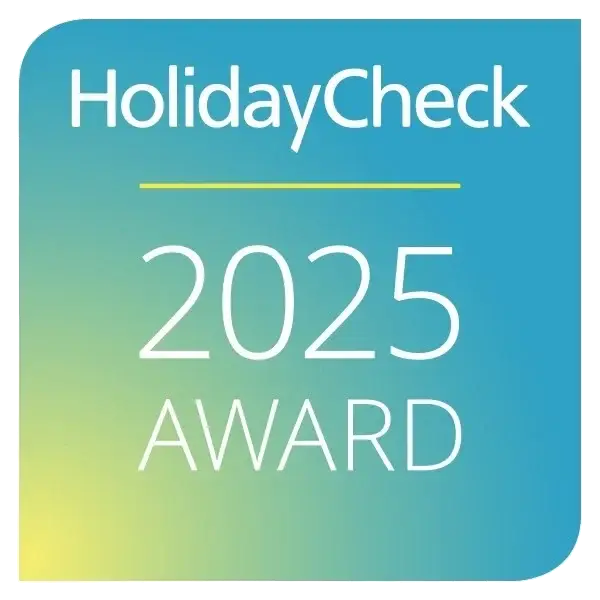- Home
- Uncategorized
- Learn Swahili with Bahari: Essential Phrases for Your Trip
Learn Swahili with Bahari: Essential Phrases for Your Trip
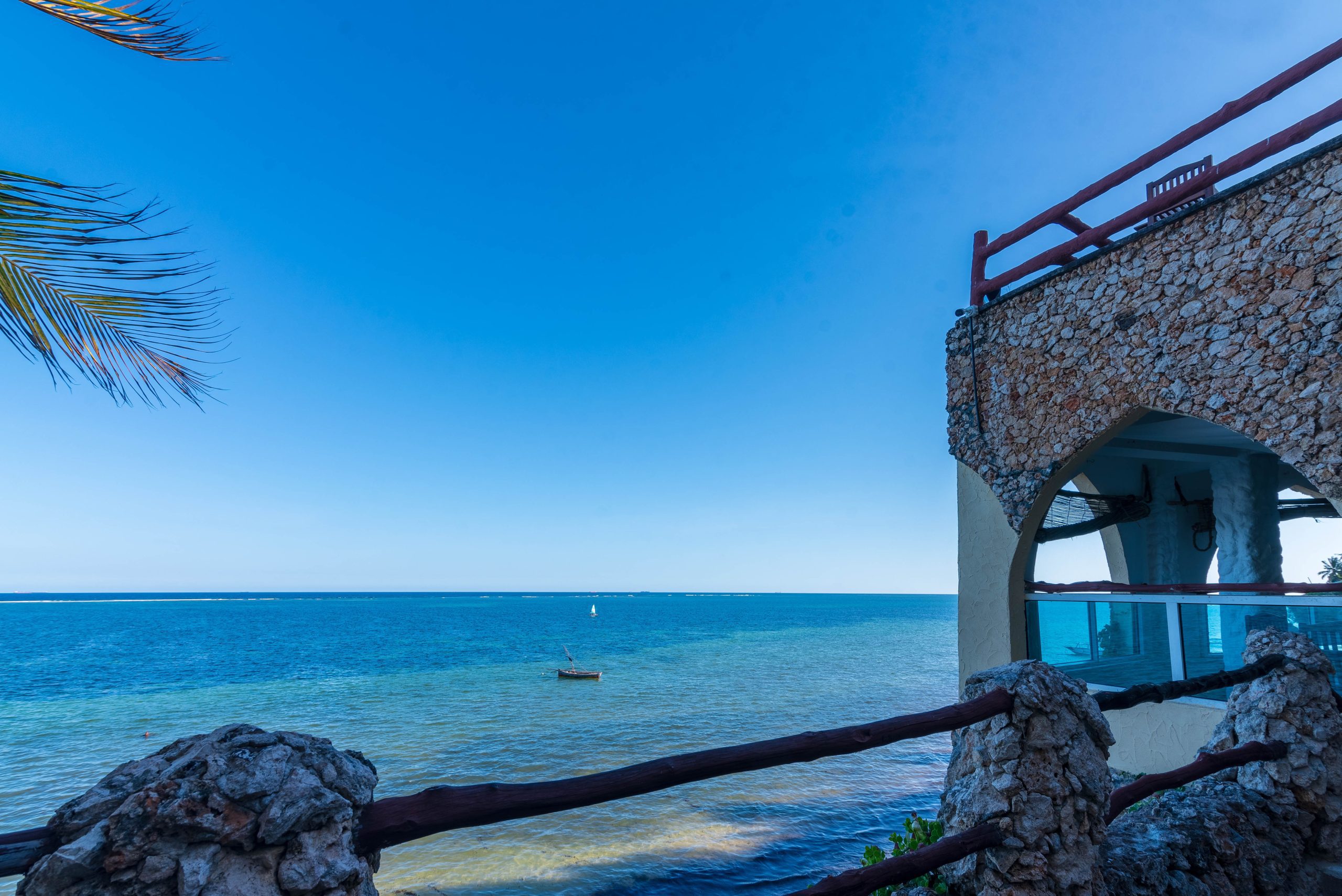
Karibu sana! (You are very welcome!) to Bahari Beach Hotel, where the warm Indian Ocean breeze dances with the lush tropical gardens of Mombasa Nyali. As you prepare to embark on your coastal adventure, why not dive deeper into the heart of Mombasa by learning a few essential Swahili phrases? Swahili, or Kiswahili, is more than Kenya’s official language—it’s a vibrant bridge to the friendly locals who make your stay unforgettable.
Whether you’re wandering along our pristine shores, exploring Mombasa’s bustling markets, or savoring a meal at our beachfront restaurant, a handful of Swahili words can transform your experience. Let’s explore must-know phrases to help you connect, navigate, and immerse yourself in the rich culture of Mombasa.
Greetings and Basic Phrases
Begin your journey with warm greetings that spark smiles and open doors:
- Jambo! (Hello!) – This is your go-to greeting, perfect for any time of day and any person you meet. You can respond with another enthusiastic “Jambo!” or a friendly “Jambo, habari yako?” to ask how they are. It’s a simple way to break the ice and show you’re ready to connect.
- Habari yako? (How are you?) – A polite way to inquire about someone’s well-being. It’s always appreciated when you show interest in the locals’ day. They might reply with “Mzuri sana” (Very well), and you can respond with “Nami, mzuri sana” (Me too, very well). This exchange builds rapport effortlessly.
- Mzuri sana (Very well, thank you) – Use this to respond when someone asks “Habari yako?” It’s a positive and grateful way to say you’re doing well. Adding “Asante” (Thank you) at the end makes it even more heartfelt.
- Asante (Thank you) – Express your gratitude with this simple word. Whether it’s for a small favor or exceptional service, “Asante” is universally understood and appreciated. It’s a key phrase for showing respect and kindness.
- Tafadhali (Please) – Adding “Tafadhali” before a request shows politeness and respect. For example, “Tafadhali, chai, tafadhali” (Please, tea, please) when ordering at a café. It’s a small word that goes a long way in smoothing interactions.
- Samahani (Excuse me/Sorry) – Use this when you need to get someone’s attention or apologize for a minor inconvenience. It’s also handy for getting past someone in a crowded market. A polite “Samahani” can turn a brief encounter into a friendly exchange.

Getting Around Mombasa
- Tafadhali, ipo wapi…? (Excuse me, where is…?) – This phrase is essential for navigating Mombasa. Whether you’re looking for Fort Jesus or the nearest beach, starting with “Tafadhali” shows respect, and “ipo wapi” means “where is it?” It’s perfect for asking directions while being polite.
- Ninafaa kwenda… (I need to go to…) – When you’re trying to get to a specific place, like the hotel or a local attraction, this phrase will help. For example, “Ninafaa kwenda Bahari Beach Hotel” (I need to go to Bahari Beach Hotel). It’s clear and direct, making it easier for locals to assist you.
- Chini karibu (Nearby) – If you’re asking if something is close by, this phrase comes in handy. It’s useful when you’re exploring and want to know if a shop or restaurant is within walking distance. For instance, “Je, hoteli iko chini karibu?” (Is the hotel nearby?).
Fun Fact: Mombasa’s Old Town, with its narrow streets and Swahili architecture, is a UNESCO-recognized gem. Knowing a few phrases can lead to friendly chats with artisans and shopkeepers!
Dining and Hotel Services
At Bahari Beach Hotel, our exquisite cuisine celebrates Mombasa’s coastal flavors. These phrases will elevate your dining and hotel experience:

- Nataka… (I would like…) – Perfect for ordering food or drinks. For instance, “Nataka samaki” (I would like fish) or “Nataka kahawa” (I would like coffee). It’s a polite and straightforward way to communicate your preferences.
- Kuna…? (Is there…?) – Use this to ask if a particular item is available. For example, “Kuna chai?” (Is there tea?) or “Kuna soda?” (Is there soda?). It’s especially useful when you’re unsure about what’s on the menu.
- Bili tafadhali (The bill, please) – When you’re ready to pay, politely ask for the bill with this phrase. It’s always good to know how to handle the check in any language, and this ensures a smooth dining experience.
Try This: Ask for “nyama choma” (grilled meat) at our restaurant and pair it with a “Tafadhali, nataka kinywaji” (Please, I would like a drink) for a true Swahili feast.
Cultural Tips for Swahili Success
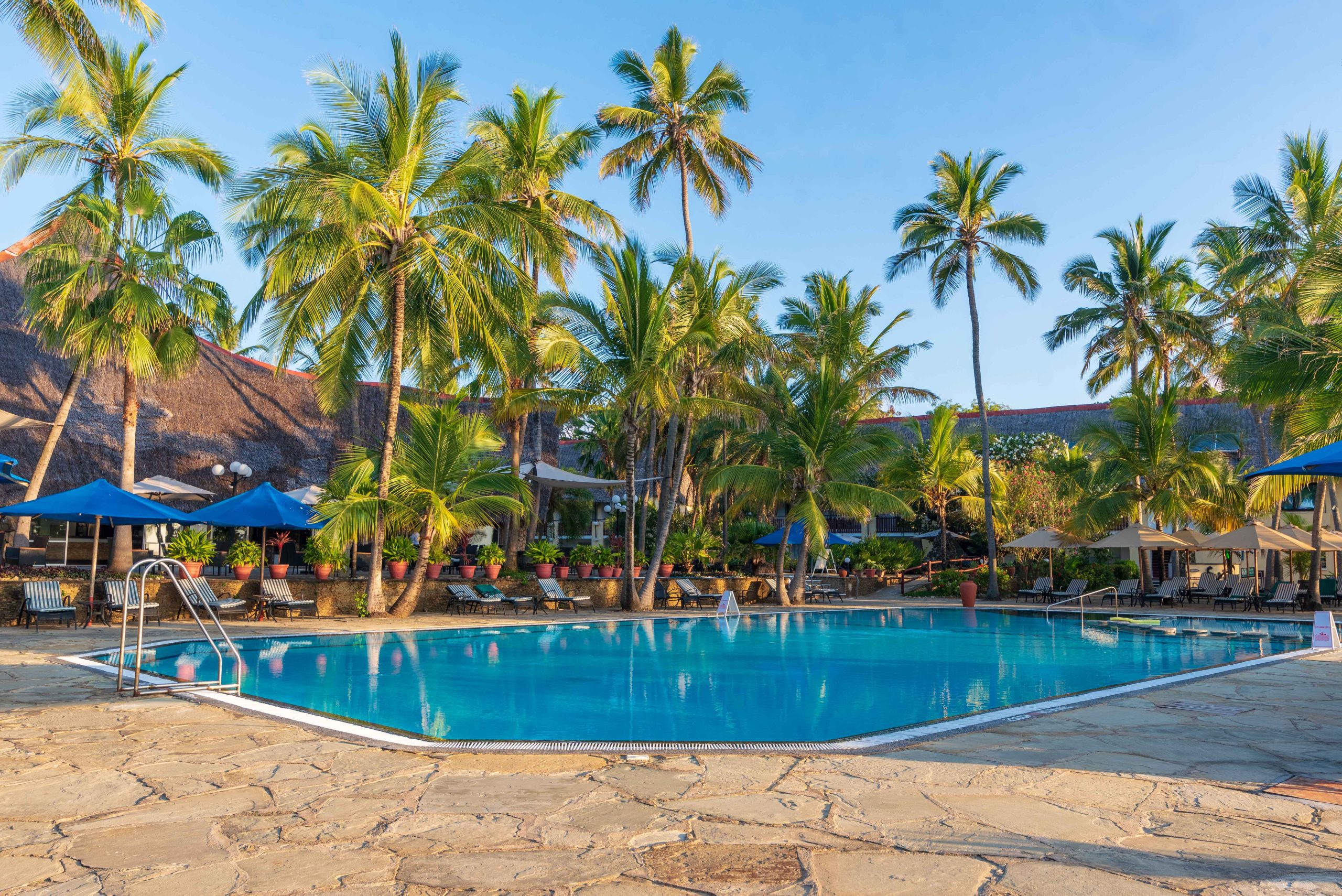
Swahili culture cherishes politeness and connection. Here are a few tips to make your phrases shine:
- Politeness Matters: Always use “Tafadhali” (Please) and “Asante” (Thank you) to show respect. These words are like keys to warm interactions.
- Greetings Are Personal: When meeting someone, ask “Habari yako?” (How are you?) and respond with “Mzuri sana” (Very well) to build rapport. Taking the time to greet properly shows you value the person you’re speaking with.
- Don’t Stress Grammar: Swahili word order differs from English, but locals will celebrate your effort, even if it’s not perfect. The intent behind your words matters more than flawless pronunciation.
By embracing these customs, you’ll find conversations flow naturally, whether you’re chatting with our staff or a vendor in the market.
Test Your Swahili: A Fun Quiz!
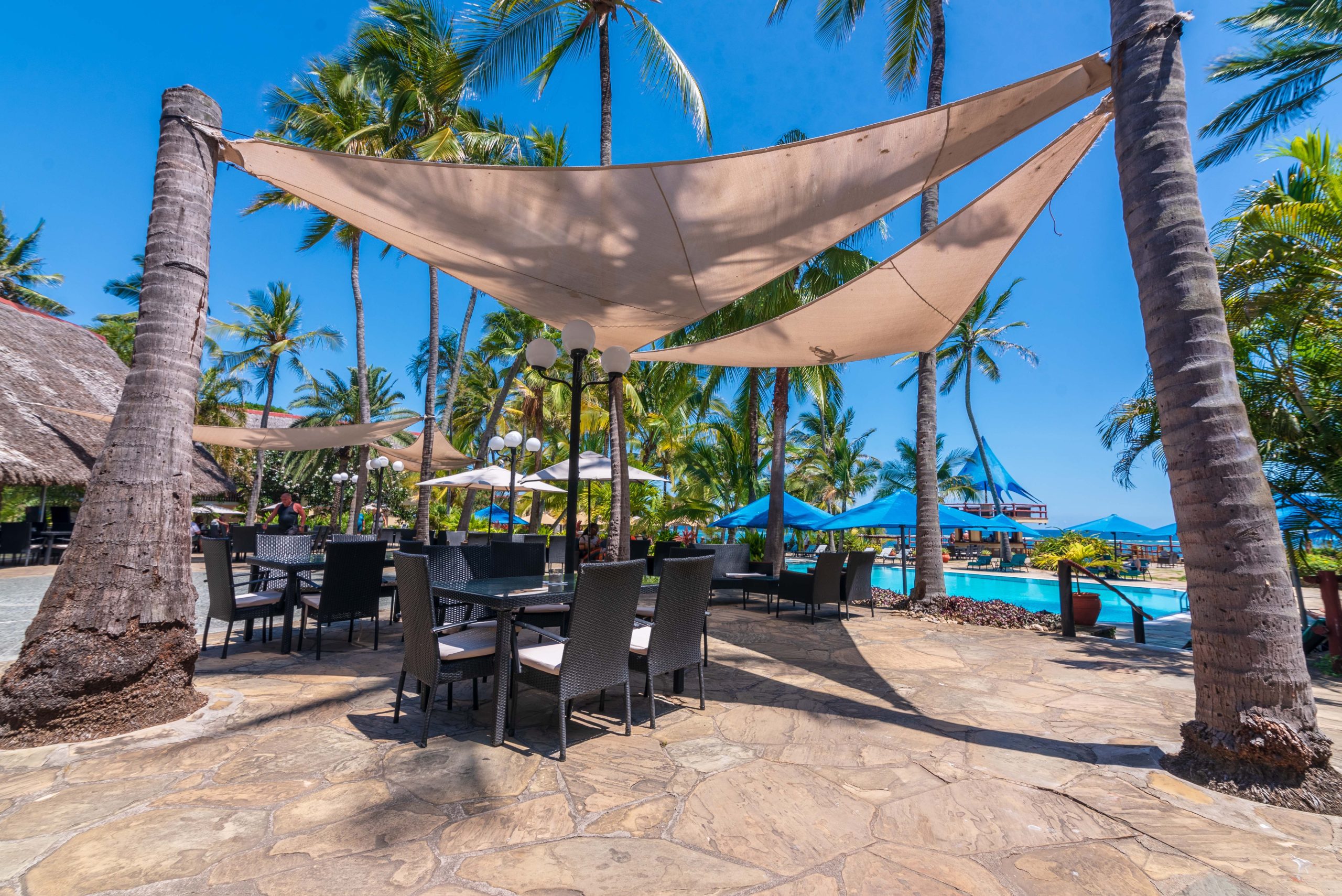
Ready to put your new phrases to the test? Try this quick quiz:
How do you say “Thank you” in Swahili?
a) Jambo
b) Asante
c) SamahaniWhat is the Swahili word for “Please”?
a) Tafadhali
b) Habari
c) Kwaheri
Answers: 1. b) Asante, 2. a) Tafadhali
Practice these phrases with our friendly team during your stay. You might even pick up a few extra words to impress your fellow travelers!
Your Swahili Adventure Awaits
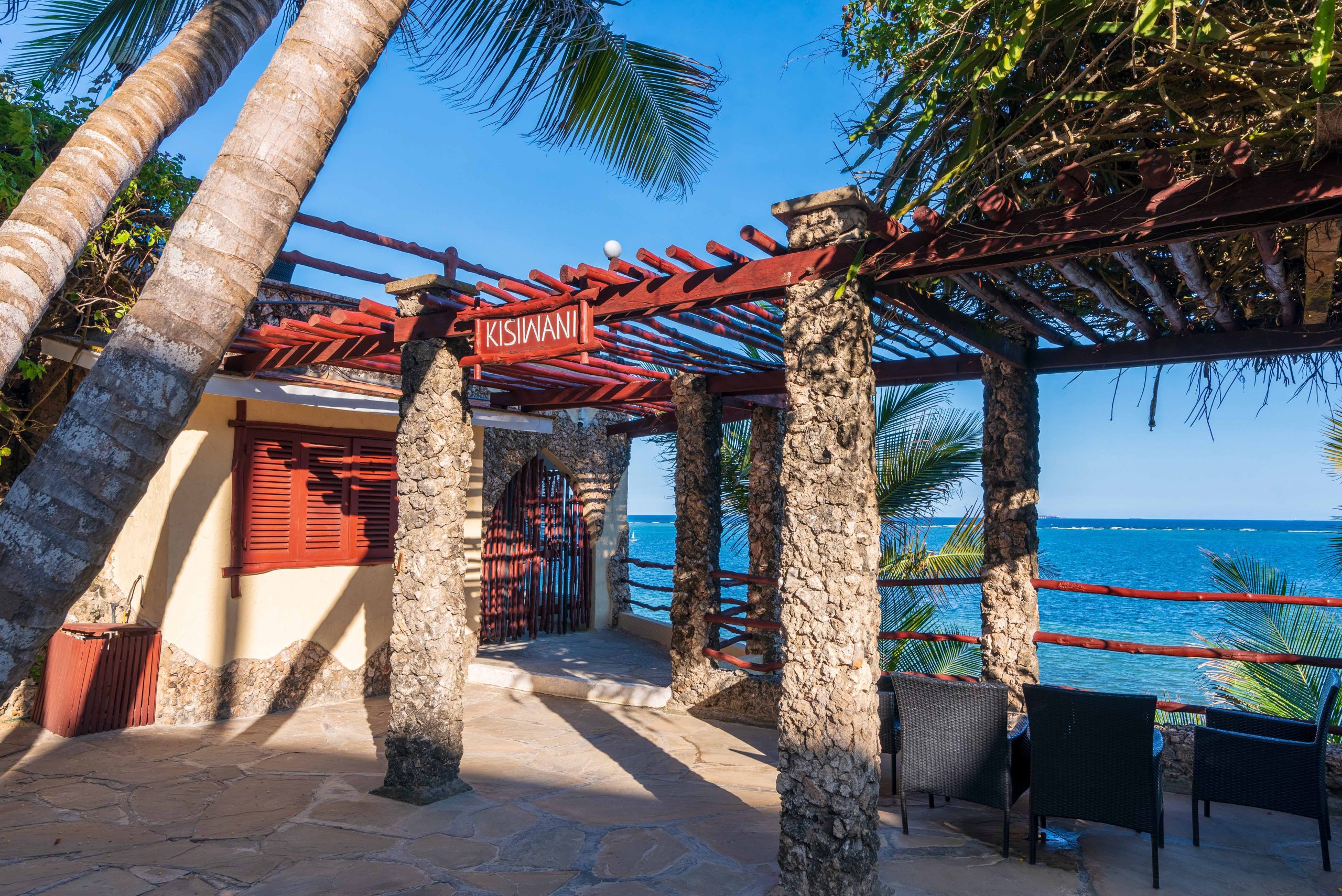
Learning Swahili is like adding a vibrant splash of color to your Mombasa journey. Each phrase you master opens a door to deeper connections with the people and culture of Nyali. At Bahari Beach Hotel, we’re here to make your stay as enriching as possible, and embracing Kiswahili is a beautiful way to start.
As you pack your bags or plan your itinerary, take a moment to practice these essential phrases. Your adventure at Bahari will be all the more unforgettable for it. Karibu sana!





